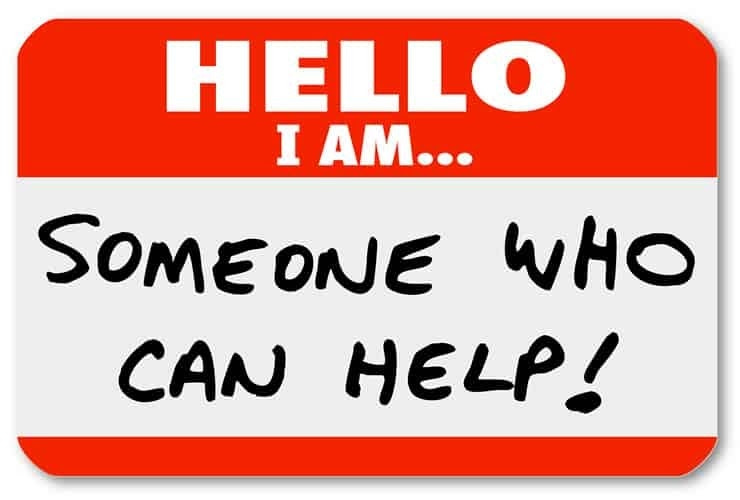[Note: For this month’s newsletter, I’ll be using an AI to generate my voice and an accompanying ~5 minute podcast. So you can have this play and get your morning coffee (@Igor). Leave a comment if you hate or like it.]
Product managers who have never worked with early stage founders often find their first experience a bit jarring. “f**ked” and “crazy” have definitely been thrown around. But “crazy” is a dismissive label we use when we don’t understand. What makes working with founders challenging?
What do Founders do?
Founders at early stage startups (< 50 employees) have three important roles: individual executor, people manager, and visionary. How much time a founder spends in each role will vary depending on the founder’s preference, the founder’s skills, and the company needs.
Founder as Executor
In this role, the founder is using her or his specialized knowledge or skill. Perhaps the founder previously worked as an industrial designer of medical devices or sales representatives cold calling potential customers. By using skills and gained experiences, the founder acts as an individual contributor, a “doer”, responsible for completing tactical tasks (e.g., creating designs, draft business terms, raising funds, talking to board members).
Founder as Manager
In this role, the founder is a people manager, responsible for managing others. Recruiting and hiring are top of mind as are coaching, retaining, and firing. The role’s focus is on assembling a group of people working together to “build” the business.
Founder as Visionary
In this role, the founder is responsible for setting the company’s vision, mission (i.e., purpose) and goals (i.e., shorter term objectives to reach the vision). As the visionary, the founder is constantly evangelising, painting a picture of the future to convince people why reaching this vision is worthwhile.
A founder will jump among these roles throughout the day, even from moment to moment. That’s why many founders describe their day as a whirlwind of activities because it will literally feel different playing each role. Being aware of this dynamic is the starting point to improving your working relationship with your founder.
Tactical Advice for Product Managers Working With Founders
First and foremost, start by helping your founder become consciously aware of the multiple roles they’re playing. You can do this proactively by setting the context before kicking off a discussion (e.g., “In this meeting, I’m seeking your help in setting the goal for our work. There are conflicting visions. Would you help us resolve?”) You can also reactively point out after an event (e.g., “I didn’t have the skill or experience to accomplish XYZ. Seeing and learning from your experience was great. Thanks for helping us execute.)
Next, identify your founder’s default role. All founders gravitate towards one of the three. It’s what they excel at and their fall back when stressed. Knowing the founder’s default role will help you determine how you can complement the founder. Again, Lilla said, “Ideally the founder communicates proactively about their style, but if not I’d encourage PMs to initiate. Prepare some questions to spark conversation: What type of problems do you enjoy solving? Can you give me a recent example? What are the things you don’t find helpful talking about? What are the things you want me to handle independently?”
Executor founders have practical skills or knowledge and like to get into the tactics. They usually have worked for several years as an individual contributor (e.g., software engineer, industrial design, product manager, customer service representative, baker, etc.). On their good day, they are masters of their craft. When overdone, they get stuck in the weeds or become perfectionists.
People manager founders have a strong EQ. They understand what drives and motivates people. Organizing communities and connecting people come naturally. People energize them. On their good days, they are teachers, connectors, guidance counselors. When overdone, they become micromanagers and dictators.
Visionary founders like ideas and thinking. They generally dislike some aspect of the status quo. Doing and people are not the focus. It’s about the future, the idea, the possibilities. On their good days, they are dreamers, evangelists, motivators. When overdone, they become disconnected from realities, any limitations or practical constraints.
In single founder startups, a founder will jump among these roles throughout the day, even from moment to moment. That’s why many founders describe their day as a whirlwind of activities because it will literally feel different playing each role.
In startups with two or three cofounders, it’s common for roles to be split. “There is a stereotype that there is only one type of founder, who is always the visionary,” says Lilla Cosgrove, Cofounder @ Candid. “Every founder is a dreamer, but for the business to succeed founders also need to flex to support each other. [At Candid], I’m really organized, so I spend more of my time translating vision into this execution. [Therefore Nick, my cofounder and CEO] can spend more time thinking longer term, the 3–5 year vision, external market factors.”
Being aware the number and type of founder you are working with is the starting point to improving your working relationship with your founder.
Become the executor when working with visionary founders
This type of founder is often not aware or concerned with the challenges of execution. They may not know how to tactically execute to achieve their vision. PMs can help by:
Install some processes (e.g., checklist, document procedure), but give some slack when some of those same processes get broken or bended. Use an 80/20 rule. Pick the processes that you really want to implement and fight hard. Simultaneously, allow process slippage in other areas. You don’t want to be a process czar because that isn’t your sole job.
Give them dedicated time to dream, but help with organization (e.g., set project timeline, list dependencies, organize meeting discussions into well written takeaways). It’s about creating an organized space, which isn’t the same as going along with every idea. Rachel Mayers, Co-Founder & CEO @ Trigger Finance (acquired by Circle), VP of Growth & Product Marketing @ Circle says “[Visionary founders] often pushes to get shit done and [the ideas] could be outside the core focus area. You should feel free to push back and not be a yes man or woman.”
Bring up facts to ground them to reality and seek guidance for tactics from other execution experts. Junior PMs often want to treat visionary founders as expert PMs. That’s a recipe for disaster because a visionary founder is not a tactical execution expert. You’re confusing a Execution Founder with a Visionary Founder. Instead, use them for their vision to help with storytelling and community building. You’re going to have to build the expert network for tactical advice by consulting with others.
Create co-creator situations with executor founders
A “doer” likes to do, so create a way to co-create without being micromanaged. Discuss with the founder how, when, and where they want to get involved and with what project/initiative. This conversation is especially important as product(s) grow in complexity because a “doer” won’t have the time or mental capacity to be involved in everything. Some specific examples of how to co-create:
Schedule more frequent check-ins throughout the creation process, not just at the end. In these check-ins, actually assign work/tasks that the founder has to utilize his expertise to complete. Don’t just present and take feedback. Instead, tell the founder you’re incorporating her or him into the project team. (e.g., Invite the founder to lead a customer interview and summarize the opportunities. ) Follow up if the work is late (I know, that sounds scary, but do it.).
Define an acceptable quality of work ahead of time. As experts in their own field, many Executor Founders have high standards for the quality of work (i.e., if I can do XYZ, so can others). However, this expectation is rarely communicated nor defined. Even when it’s defined, perhaps you can’t meet this standard in the same time frame. Having these difficult conversations early is always better than delaying the issue.
Build in small steps to earn PM autonomy. This is related to the prior bullet. Executor founders can sometimes have trouble giving up final control by delegating decision-making to a PM. They are afraid that the decision made will be harmful (e.g., hurt the company, product, metrics). To fight this, start out working on a project with low risk (i.e., where failure isn’t going to cause any major headaches). The goal here is to simply demonstrate autonomy, ownership, and learning, even if everything goes wrong. It doesn’t necessarily even have to be a project that touches the product (e.g., operations, people onboarding, better calendar organization).
Set guardrails for decisions that have impacts. As you expand your autonomy, you’ll eventually come across decisions where the wrong choice you make will result in a harmful outcome. That’s unavoidable. This is the stage where rather than escalating that decision up to the founder, help define the guardrails. For example, maybe it’s okay if it’s a 1% decline in XYZ metric if the decision resulted in a bad outcome. By defining what’s the level of harm that’s acceptable, you’re demonstrating ownership and deeper thinking while also expanding your PM autonomy.
Bring conflict resolution techniques to people manager founders
Making everyone happy is impossible. People manager founders will struggle keeping everyone at the company content (any group of people large enough will have disagreements). Thus, they may delay resolving open conflicts or taking actions that minimize creating conflict. However, a great group of people doesn’t necessarily result in a great product. Here are some techniques you can introduce:
Introduce healthy conflicts resolutions techniques. Examples include defining a time/space to discuss opening, giving everyone the opportunity to take turns listening then talking, and reminding people that everyone is working at the same company. The goal isn’t to resolve the conflict, but introduce ways for people to face conflicts with tools to help with resolution.
Introduce the concept of unresolvable conflicts by identifying if something’s out of balance. Some problems are meant to be solved with a single solution. These type of problems are inherent in the system and there needs to be a balance rather than be solved. This can be especially challenging for task-oriented and logical PMs. For example, there’s a natural conflict between sales and operations where sales is more focused on new but operations have to support the existing. As a result, that tension between new things vs. improving existing is natural and won’t ever be “resolved.” Instead, the goal should be to identify when things are too far out of balance (e.g., sales gets to dictate everything and operations must do it).
Instrument automated forcing mechanisms (i.e., policies). Making decisions to resolve conflicts between people is tiring, emotionally and physically. To conserve energy, it’s helpful to institute automated decisions by creating defined policies that apply to everyone. By developing a policy (I know this will feel interpersonal) to handle common situations with an automated rule, it puts everyone in the same standard. But you don’t need to sit down and make up imaginary situations. Instead, the next time an unique request occurs, thinking about how you can generalize the situation and create a rule to handle the situation in the future. Then, document it.
Some “last helpful words”
If your strengths don’t complement your founder’s default role, it isn’t a good outcome. Perform an honest gut-check. Does your strengths complement your founder’s default role? Sometimes, your skills and interests directly oppose a founder’s. For example, I’ve seen product managers try to push for a competing vision contrary to the founder’s vision. You’re going to lose and lose your job. Very few founders are going to cede control to their default role at early stage startups (<50 people).
Change your style as the founder grows and changes. All successful companies that grow, changes are inevitable. Those changes will also force your founder to change, where their default role may no longer be the same as before. You can only observe this over the long-run, typically 1 - 2 years. If you identify the change, re-evaluate yourself. Do your skills still complement your founder? Are you also growing and changing to adapt the needs of your founder?
Don’t assume your founder is your product mentor. There are many things you’ll learn working at a startup, but junior product managers sometimes mistakenly treat their founder as their product mentor. This is frequently the case if there aren’t any other senior product leaders at the company. But a founder, even if she is your manager, isn’t always also an expert in product management. Even if the person is an expert, the founder may not have the time dedicated to be your product mentor. That’s why I encourage all product managers to develop product mentorship outside of their company via meetups, conferences, twitter.
Through some understanding of the founder’s role and adjustment of how you work, you’re more likely to succeed in building a good relationship with your founder and help build a great product.
Special thanks to the following people who gave their generous time:
Dan Khan, Chief Digital Officer @ Young Enterprise
Rachel Mayer, VP of Growth & Product Marketing @ Circle, Co-Founder & CEO @ Trigger Finance (acquired by Circle)
Lilla Cosgrove, Cofounder @ Candid, ex-PM @ Alfred
[A version of this article was originally published on mindtheproduct.com on 12/22/2020. It was updated on 2/8/2021]
Sources










